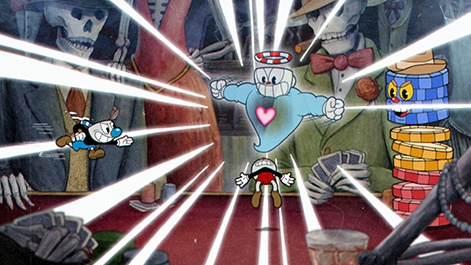It's no secret that the indie games market is always under pressure.
With more games coming out than ever before, in particularly on PC, getting attention - and therefore success - can be something of a tough task.
Microsoft has been endeavouring to help studios out in that regard. Since 2013, it has been focused on assisting indie studios get to market with its ID@Xbox scheme, and has clearly been very successful to this end. At Gamescom 2017, the outfit revealed that the games released through the programme had made $500m in revenue; just seven months later at the Game Developers Conference 2018, that figure had jumped to $1bn.
"We've effectively doubled the amount of money these games have generated in just six months. That's great for Microsoft, it's great for the developers," ID@Xbox's European chief Agostino Simonetta tells PCGamesInsider.biz.
"Now we have 2,800 developers with dev kits and almost 800 titles have launched across Xbox and Window 10 from 477 developers across the globe. I think we probably have all the continents covered. Since the launch of ID@Xbox, more than four billion hours have been spent playing our games, which is about 450,000 years. We obviously know the data, we know how much we have sold.
"But when you take a snapshot like that and look at the data altogether. It feels good. It feels like we're going in the right direction. At the same time, the feedback we are getting from the developers is positive. We put a lot of effort into making sure they have the best possible experience and invest a lot in making sure we promote them as much as we can."

This growth is in part driven by the large number of games released through the scheme, but also some 'outliers' that do particularly well. One such outlier is Cuphead from Studio MDHR. That game, with its 1930s cartoon style, has sold over two million copies since its September launch.
"We always knew that Cuphead was special," Simonetta says.
"It was the team's first game and there was so much anticipation. But you never know what's going to happen when the title launches. Internally, we didn't know how it was going to do. You never know. We play an internal game where we forecast and try to guess. Sometimes we get it right, sometimes we get it wrong. The developers proved they had amazing talent and they proved that they could deliver something that the gamers absolutely loved. Up to that point, we knew that gamers were keen to come play the game at shows. We knew the media and influencers were keen to play it. But when it goes out in the wild and people really love the game. It won loads of awards, as well as being nominated. It's been critically acclaimed and also a big commercial success."
Arguably the biggest addition to ID@Xbox since its inception five years ago is that of Game Preview, the Windows and Xbox equivalent of Steam's Early Access programme.
"The community was keen for it. Developers wanted to launch titles on Xbox when they are not finished. There was a gap, and no console has done it since," he says.
"It's paid off with so many titles. It's easy to say 'PUBG' but when you think of titles like Ark: Survival Evolved, you have other titles like Shelter and DayZ. There are so many. The way we relate to developers is the same. We go travelling, try to meet as many developers as we can, explain to them ID@Xbox. We have a lot of developers who have had a good experience with us who are recommending us to other developers to come talk to us. We are as open as we've ever been.
"We really believe in it. There's a real belief for the Microsoft and Xbox teams to support the development community. They bring innovation and that helps everybody."
As said before, there are challenges facing the indie games market. A few years ago, this led to the notion of the indiepocalypse, that independent game development was somehow doomed. Back when we first met Simonetta in 2015, he insisted that there had never been a better time to make games; something he still firmly believes.
"I always go back to video content or music or books. The barriers to platforms and technologies are gone," he says.
"There are still some but compared to when I started there are very few barriers. We are creative animals, so people want to create interactive content, the same way that people have been writing books since forever. We need to accept that it isn't an apocalypse; we just need to shift our mindset and that means a big change in mindset, in how some people create games for themselves because it's a passion project. That project might need to sell 10 or 20 or 30,000 copies. It might not need to sell any copies. Some people play an instrument they play with friends, they put their album on SoundCloud and they don't need to make money off it. It's very, very different. We are now realising that it's not an apocalypse, it's just our mindset shifting."
When I started, it was impossible for independent developers. I started nearly 20 years ago in a small independent team in Italy working a few terrible games. It's been a while. Time has changed, for the better.
Rather than being an apocalypse, this has been a process of the market settling. At the start of the indie boom, a number of studios and developers had big success, something that everyone and their dog felt could be replicated. The reality is that more content means more competition.
"Everyone needs to adjust to the new reality where there is a lot more content," Simonetta continues.
"That means that there are games that in the past, when there was less content and the barriers were very high, would never have been created. The fact that anyone now can create something means there are ideas that before would not have been explored. Not all of them would be successful. Games, like any other media, are a hit-driven business. But look at the innovation that they have created. Chris and I give this talk about how developers should think about creating a game and the business side of things - what they need to be aware of. Being aware of the competition means you need to maximise your opportunities to be feasible, to talk to journalists, to get their game in front of consumers. There is a lot of support. It's probably safe to say that ID is the No.1 platform in terms of promoting independent games, but companies like Nintendo, Valve... there are so many people involved in trying to push content. This is the best time ever. When I started, it was impossible for independent developers. I started nearly 20 years ago in a small independent team in Italy working a few terrible games. It's been a while. Time has changed, for the better."
So, it's been five years working on projects that have collectively made $1bn. Where does Simonetta see ID@Xbox a year from now?
"Hopefully, we'll have helped a lot more developers release their games on our platform, have a lot of developers showcasing their products to consumers," he says.
"Ultimately, the developers are publishers, so they need to do their best to showcase their products. We continue this level of investment in promoting our partners' content. And hopefully, we find another big Cuphead-style hit. The thing for me is that I'm confident that what we are doing today in terms of supporting the community will only grow. I want us to continue to grow our effort in this space."

















